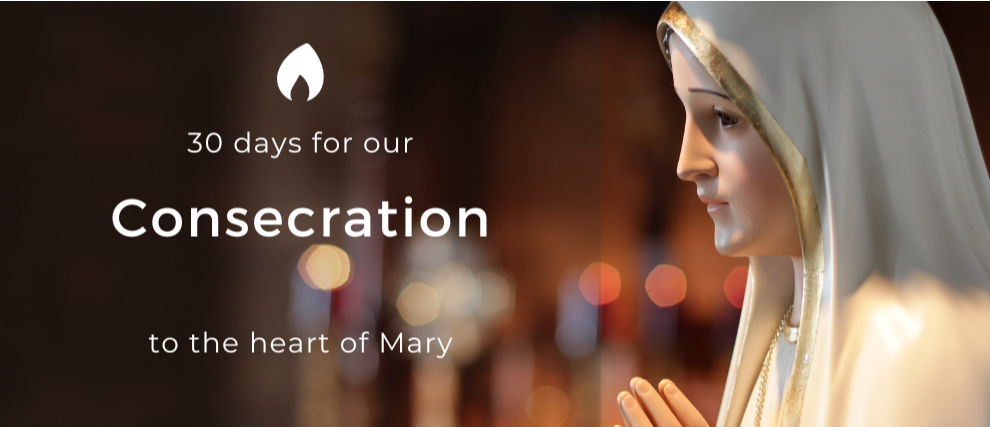Saint Francis de Sales
Biography of Saint Francis de Sales
François was born on August 21, 1567 in the castle of Sales, near Annecy in Haute-Savoie, which was at the time an independent land. He was baptized a week later in the parish church of Thorens.
Between 1578 and 1591, François studied civil and canon law in Paris and then in Padua, Italy. During this period, Francis went through a spiritual crisis due to Calvinist influence and the idea of predestination. He thinks he’s damned and lives in great anguish. He was freed from it thanks to the prayer of Remember Mary of Saint Bernard of Clairvaux and pronounced this beautiful act of abandonment: “Whatever happens, I will love you, Lord, at least in this life if I am not permitted to love you in eternal life, and I will always hope in your mercy.” This trial will leave its mark on Francis, who will have a spirituality full of mercy, goodness and benevolence.
Despite the reluctance of his father, who had great professional and marriage ambitions for him, he wished to give his life to God. He was ordained a priest in 1593 and courageously set to work, carrying out an apostolic ministry. He leads an austere life of prayer and penance, carrying out his priestly duties with care: he preaches, confesses, reconciles and catecheses, his preference being for the poor and prisoners, as well as children. In 1602 he was appointed bishop of the diocese of Geneva, the city was at the time a Calvinist fief and Francis exercised a difficult mission to bring the Catholic faith to his diocese. Placing preaching at the heart of his mission, he sought to bring Protestants back to true faith through charity. He trains the priests of his diocese to make them true “devotees”, that is, cultivated and competent. To reach people he cannot meet, he writes personal letters, posts his texts in public places or passes them under the doors, he also publishes small “gazettes”, thus unknowingly creating the first Catholic “newspaper”. Francis meets Saint Vincent de Paul in Paris, who became his friend and would say of him: “I was inclined to see in him the man who best reproduced the Son of God on earth.”
In 1610, together with Saint Jeanne de Chantal, he founded the Order of the Visitation of Saint Mary in Annecy. It was in this order that Saint Margaret Mary Alacoque received the revelations of the Sacred Heart of Jesus some sixty years later. Exhausted by the apostolic task, he died on December 28, 1622 in Lyon.
François de Sales was canonized in 1665. In 1877, Pius IX proclaimed him Doctor of the Church. He is the patron of Catholic writers and journalists. He is also the boss of the deaf and dumb for having cared for a man with this disability for 17 years. The feast of Saint Francis de Sales is scheduled for January 24.
Come and discover the life and work of many other saints on Hozana.
Œuvres de saint François de Sales
The writings of Saint Francis de Sales
The writings of Saint Francis de Sales consist of his many sermons and interviews, as well as his correspondence. These letters (more than 2000) testify to his charisma as spiritual director and to his tireless apostolic activity. His 1608 work: The Introduction to the Devout Life, gathers letters addressed to a Philotheus (friend of God), this book perfectly met the spiritual expectations of the time and was immediately a great success. Published several times, it was a bestseller in the 17th century. François de Sales also wrote in 1616 the Treatise on the Love of God, which is addressed to every soul “in love” with God to help it progress on the path of an ever deeper union with him, whatever his own vocation.
The spiritual posterity of Saint Francis de Sales
If Francis de Sales is with Mother Jeanne de Chantal the direct founder of the Order of Visitation (the contemplative visiting sisters live in cloisters and follow the rule of Saint Augustine), the Salesian family is great. François de Sales led a great spiritual posterity, especially through the French School. In the nineteenth century many congregations and spiritual societies were inspired by his work, here are the most widespread: the missionaries of Saint Francis de Sales, the Oblates and Oblates of Saint Francis de Sales, the Salesians of Don Bosco, the societies of Saint Francis de Sales.
Spirituality and quotations of Saint Francis de Sales
Francis de Sales had an obvious charisma for the direction of souls and for preaching, and he, who was called “the Doctor of divine Love and evangelical sweetness”, developed a spirituality marked by sweetness. Far from burdening souls with heavy burdens, he insists on the simplicity of holiness that is within everyone’s reach, whatever their life may be, and is characterized above all by the love of God and neighbor. Here are beautiful words of Saint Francis de Sales that illustrate well his spirituality, which is surprisingly current.
Concerning the preaching: “Your words must be inflamed, not by excessive shouting and deeds, but by inner affection. They need to come out of the heart more than out of the mouth. We may say, but the heart speaks to the heart, the mouth speaks only to the ears.”
Acceptance of self and others: “The virtue of patience is the one that most assures us of perfection, and if we must have it with others, we must also have it with ourselves.”
Act with love: “It is not by the greatness of our actions that we please God, but by the love with which we do them.”
Holiness for all: “It is a mistake, a heresy, to want to banish the devout life of the company of soldiers, the shop of artisans, the court of princes, the household of married people… Wherever we are, we can and must aspire to perfect life. ” He said again: “We are all called to holiness … all without exception.”
We must love our vocation and live fully “where the Lord has planted us”.
Doing your state duty with love: “Great works are not always on our way, but we can at any time make small works excellently, that is to say with great love.”
Prayers to Saint Francis de Sales
The prayer “I cry to You, O my God”
I cry to You, O God, I speak Your most holy Name, but I can never grasp You! Lord my God, you are greater than our words, quieter than our silence, deeper than our thoughts, higher than our desires. Give us, O sovereign God, so great and so close, a living heart, new eyes, to discover you and to welcome you when you come to us.
Amen
Prayer to the Virgin Mary for the children of Saint Francis de Sales
Virgin Mary, Mother of God and our Mother, it is to you that we address with quiet and peaceful confidence.
Mother of Christ and of the Church, bless our children. We entrust them to you.
Teach them to open their eyes to what is beautiful, their mind to what is true, their hard to what is good.
Awaken them to listening to the little ones and sharing
Better than us, watch and take them for your children in Christ.
Bless all who surround us.
Take charge of our life in the love of your son, Christ Jesus.
Amen. Amen.

